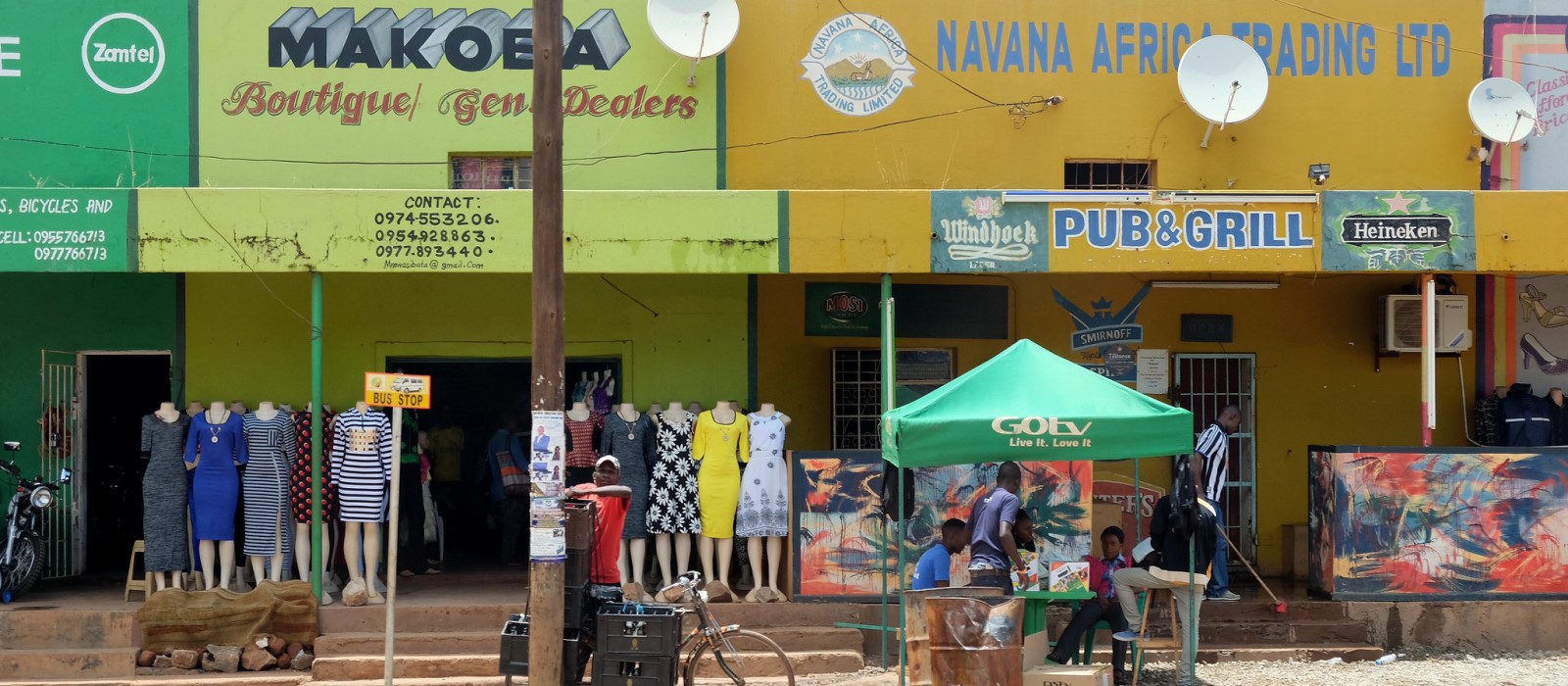Kinship Pressure and Employee Selection in Zambia

Roadside shops in Zambia | Lars Plougmann via Flickr
Study Context
Firms in the developing world have few employees (Hsieh and Olken 2014), and when businesses do hire “the vast majority of microenterprises have no employees outside the owner’s family” (Jayachandran 2021). Most economists understand the propensity to hire relatives as arising from contracting frictions and missing information markets: relationships substitute for institutions (Ilias 2006, Jayachandran 2020, Kali 1999, Zenou 2008). Social norms may be a key determinant of the propensity to hire family into businesses. A substantial literature in anthropology suggests that firms hire relatives not as the optimal response to contracting frictions, but rather as a result of kinship pressure or mutual insurance arrangements (Kennedy 1988, Akyeampong et al. 2014). The project aims to test whether social norms lead to business owners hiring their relatives as employees, and the efficiency consequences of this practice.
Study Design
The researcher will conduct a randomized experiment to elicit microenterprise owners’ willingness to hire relative or non-relative employees under different conditions of the public observability of their choice. The researcher randomized employers into one of three groups in which: 1) employers received a subsidy to hire a relative, 2) employers received a subsidy to hire a non-relative or, 3) employers received a choice of who to hire. The researcher then also carried out the employer’s choice under two conditions. In the first condition, employers had to make their choice of whether they preferred to hire their relative or non-relative publicly. In the second condition, employers were permitted to make this choice privately and not reveal it to the employees. The researcher then compared how the choice of who to hire differed under these two conditions to see if employers would change their preference of who to hire when they had to make this choice publicly in front of family members. The research team also measured 1) how many kilos of maize employees shelled and 2) the quality of this maize (as observed by enumerators and judged by buyers of maize in town).
Results and Policy Lessons
When employers had to state publicly who they wanted to hire for the job, they became far more likely to say they preferred their relative. However, when asked privately, employers were more likely to choose to hire non-relatives than family members. This is consistent with the idea that there might be a social norm or informal obligation to choose relatives over others, suggesting employers privately see benefits to not hiring within the family. Comparing the productivity of non-relatives and relatives who were randomly assigned to shell maize for the employer, relatives of the employer performed worse on almost all dimensions. Relatives shelled less maize and the shelling work was of a lower quality than non relatives. Despite this, employers had to pay the same amount for their work. These initial findings suggest that small agricultural businesses face particular challenges when they engage in the common practice of hiring of family members. Future research will explore the challenges around how small business owners navigate social norms and expectations while also seeking the best employees for the job.


